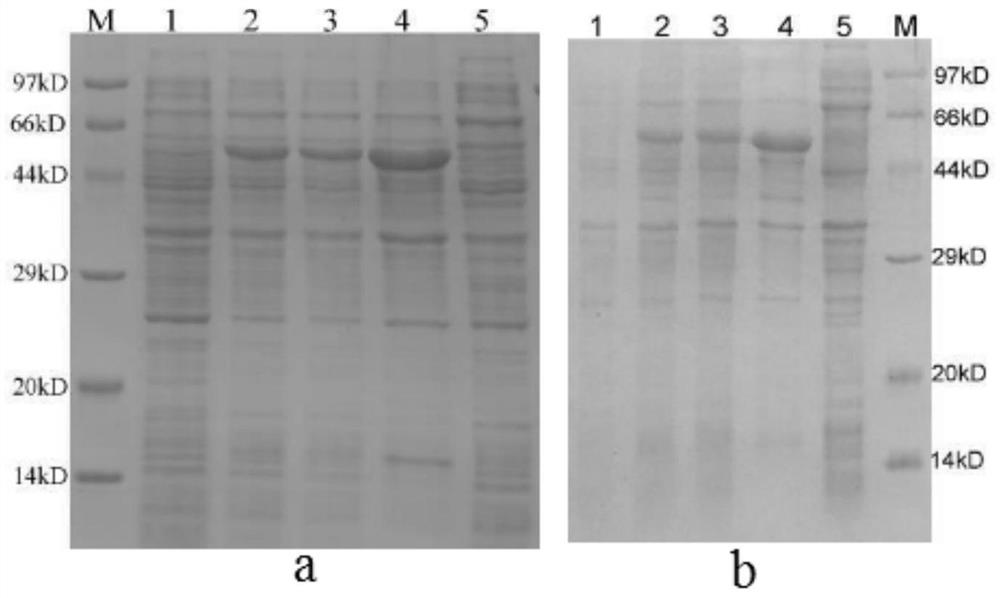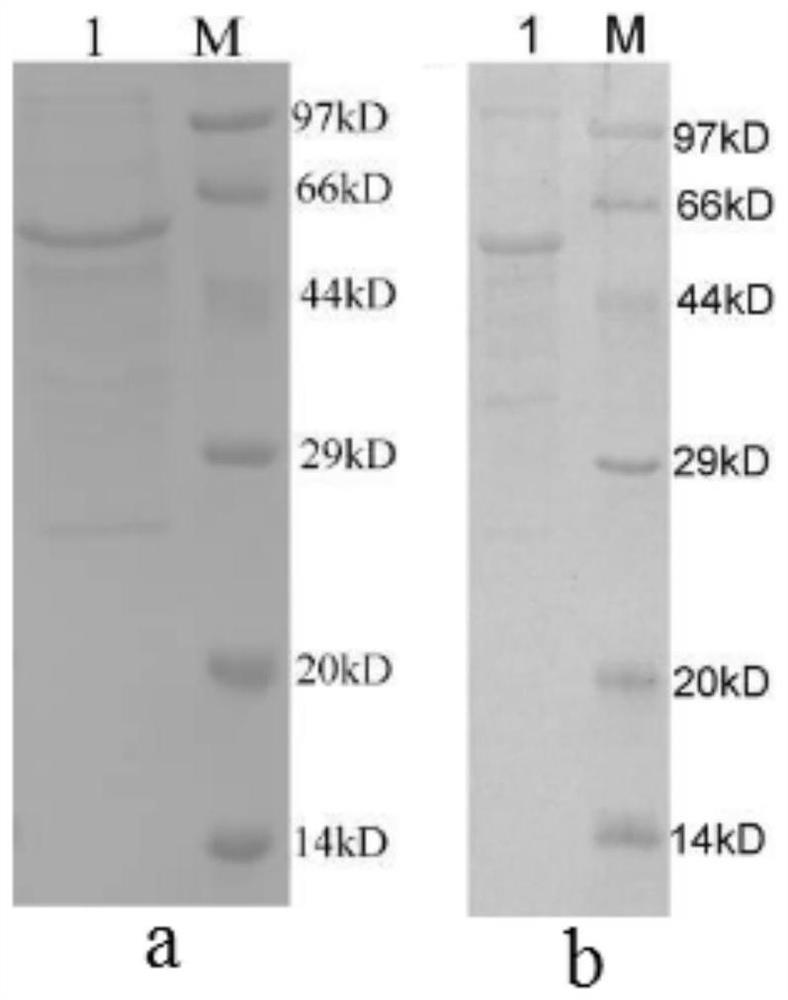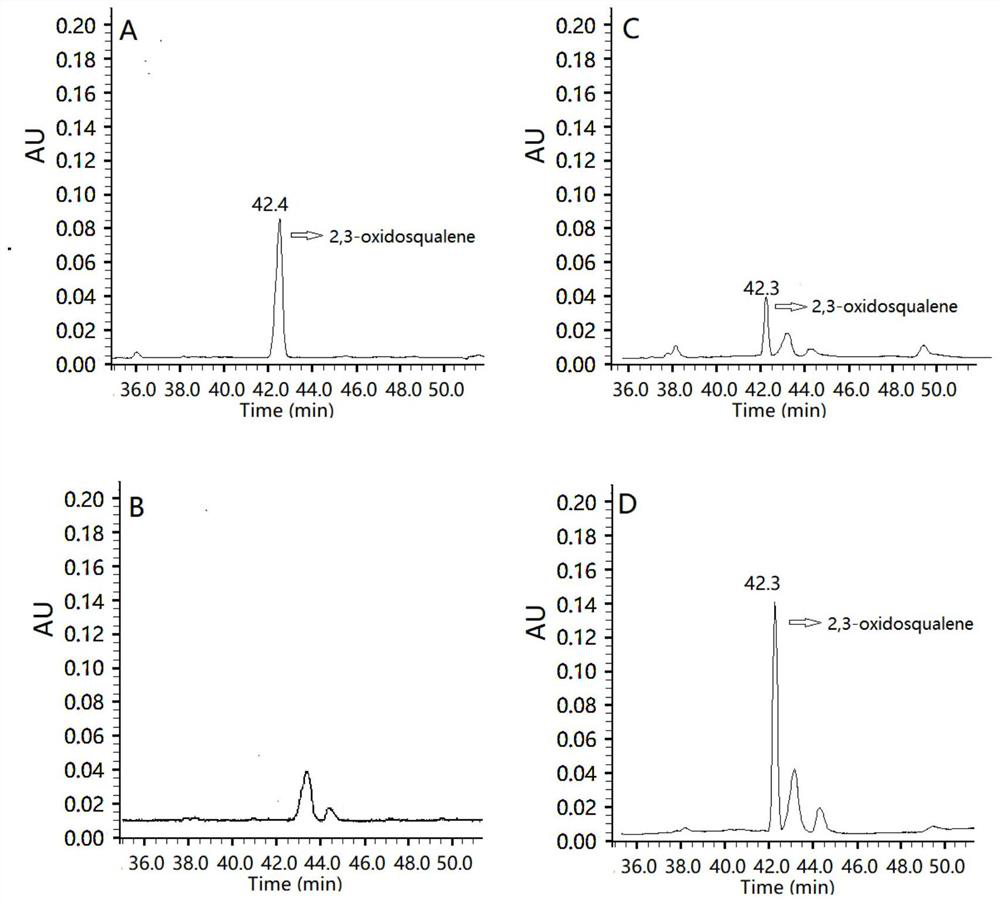Alisma squalene epoxidase and its application
A technology of ene epoxidase and Alisma shark, which is applied in the field of molecular biology, can solve the problems of narrow distribution of resources, low content, and inability to meet utilization needs, and achieve the effect of improving synthesis efficiency
- Summary
- Abstract
- Description
- Claims
- Application Information
AI Technical Summary
Problems solved by technology
Method used
Image
Examples
Embodiment 1
[0038] This example specifically illustrates the full-length cloning method of the Alisma squalene epoxidase of the present invention.
[0039] Alisma is harvested from the Jianou planting base in Fujian Province, and identified as the Alisma orientale (Sam.) Juzep by Professor Gu Wei of Nanjing University of Traditional Chinese Medicine. After collection, they were transplanted to the flower room of Nanjing University of Traditional Chinese Medicine. After the plants grew stably, the fresh leaves were taken and aliquoted into cryopreservation tubes, and stored in liquid nitrogen for future use.
[0040] 1.1 Extraction and detection of total RNA from Alisma
[0041] The extraction of total RNA was carried out according to the operation steps of Tiangen total RNA extraction kit (batch number: DP419):
[0042] ①Take 100mg of plant tissue, transfer it to a pre-cooled mortar, and grind it into powder in liquid nitrogen;
[0043] ②Add 1 mL of lysis solution to the powder, and aft...
Embodiment 2
[0067] This example illustrates the prokaryotic expression method of the gene of the present invention.
[0068] 2.1 Vector construction: The primers (SF5, SR5; SF6, SR6) shown in Table 2 were designed according to the sequences of Alisma orientalis AoSE1 and AoSE2, and SE was cloned into the pGHn vector. The reaction system and procedure are as follows:
[0069] Table 2 Primer sequence list in the text
[0070]
[0071] The reaction system is:
[0072]
[0073]
[0074] Reaction program: 94°C for 5min; 94°C for 30sec, 54°C for 30sec, 72°C for 1min, 30cycles; 72°C for 1min.
[0075] The PCR product was mixed with Loading Buffer and then loaded on a 1% agarose gel, and the target band was detected in a gel imaging system. The recovery, ligation, PCR identification and clone sequencing of the target fragment. The gene AoSE ORF was cloned into the pCzn1 expression vector between NdeI and XhoI, and the target gene was fused with 6X his tag protein to obtain the pCzn1-A...
Embodiment 3
[0097] This example illustrates the functional validation of AoSE1 and AoSE2 enzymes.
[0098] In order to test the catalytic function of AoSE1 and AoSE2, an in vitro enzymatic reaction system was established.
[0099] The reaction volume is 500 μl: 0.1 mM DTT, 25 mM MgCl 2, 490μM squalene, 0.14mM NADPH, 0.5% Triton X-100, 1mM FAD, 10μL target protein, add Tris-HCl (PH 7.4) to 500μL reaction system, incubate the reaction at 25°C for 20h, add 15 μL to each test tube The experimental reaction was terminated by %KOH / MeOH and extracted twice with equal volume of n-hexane for content determination. Negative controls were performed under the same conditions, but using E. coli extracted with an empty vector.
[0100] Metabolites were qualitatively analyzed by HPLC, chromatographic conditions: YMC C 18 Chromatography column (5 μm, 4.6×250 mm). Mobile phase: (phase A: water, phase B: acetonitrile); elution program: 0–20min, 25%–65%B; 20–40min, 65%–85%B; 40–50min, 85%B; 50 -60min, ...
PUM
 Login to View More
Login to View More Abstract
Description
Claims
Application Information
 Login to View More
Login to View More - R&D
- Intellectual Property
- Life Sciences
- Materials
- Tech Scout
- Unparalleled Data Quality
- Higher Quality Content
- 60% Fewer Hallucinations
Browse by: Latest US Patents, China's latest patents, Technical Efficacy Thesaurus, Application Domain, Technology Topic, Popular Technical Reports.
© 2025 PatSnap. All rights reserved.Legal|Privacy policy|Modern Slavery Act Transparency Statement|Sitemap|About US| Contact US: help@patsnap.com



